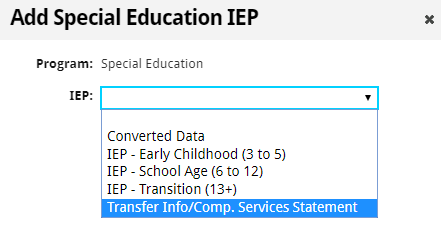

An IEP that promotes challenging expectations and ensures participation and progress in the general education curriculum is one that focuses on local and state curricular content standards and related assessments. Thus, statements of present levels of academic achievement and functional performance, measurable annual goals, special education and related services, and the ongoing monitoring and evaluation of IEPs, should relate to state and local standards. It is also important that the IEP address each of the child’s other educational needs identified in the present levels of performance that result directly from the child’s disability.
An IEP must be developed within 30 calendar days of a determination that the child needs special education and related services and must be implemented as soon as possible after written parent consent is granted for the services in the IEP. In addition the LEA is required to ensure that an IEP is in effect at the beginning of each school year for each child with a disability. (34 CFR § 300.323(a) and (c)).
As the Case Manager begins to draft an IEP for a student, several important key points must be held in the forefront throughout the development process. Because of the legal and educational importance of the IEP, it is imperative that the IEP team develop IEPs that are both legally correct and educationally meaningful. More specifically, as the IEP is drafted, teachers must remember:
(Appendix C, US Department of Education)
In order to begin the IEP process for a student, users will select the student from their caseload. Once you have selected a student, navigate to the student’s Programs tab. Click “Add IEP” to begin drafting an IEP. Select the appropriate IEP type based on the student’s age, and click “Next.”


To continue to the next step in the IEP Process: IEP Team and Parent Guardian Information, click Next below.
IEP Process Overview